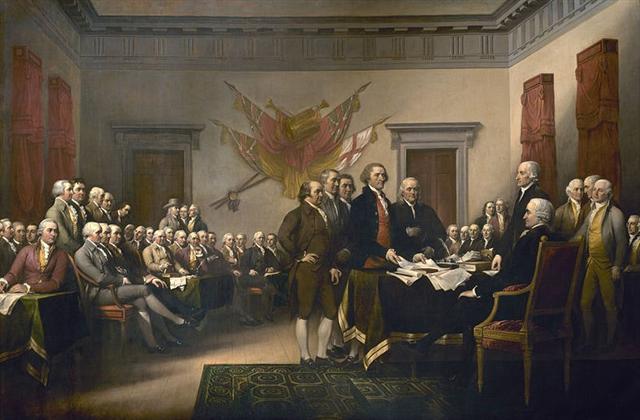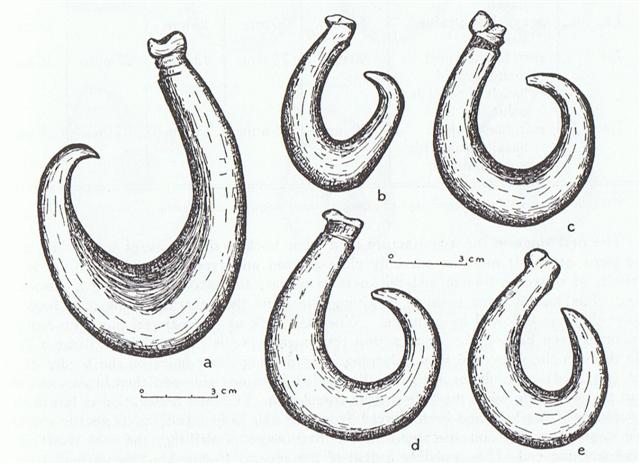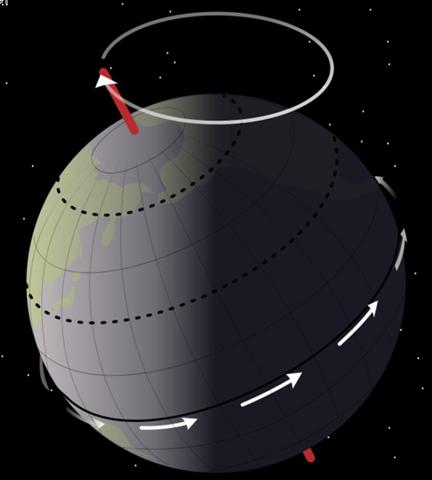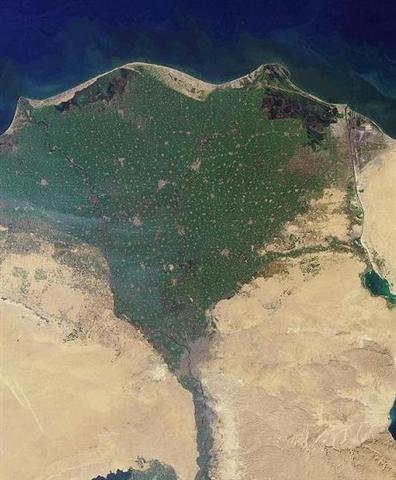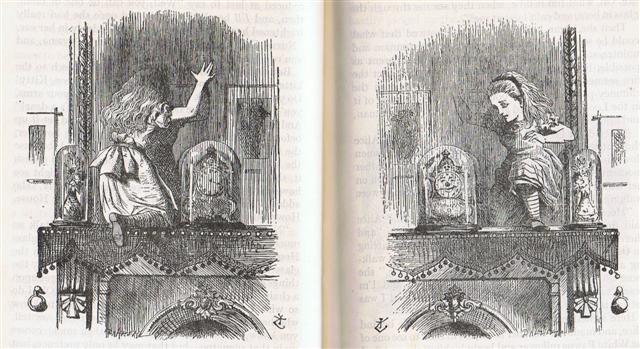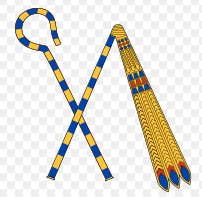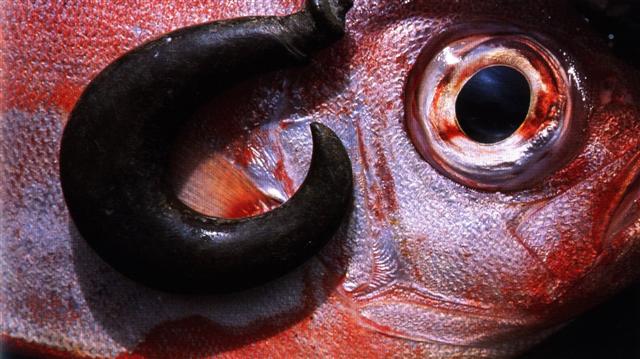28. In G the place for Sirius was illustrated first at the position it would have had when rising with the Sun at the time of Gregory XIII - i.e. 4 precessional days earlier than at the time of rongorongo. July 4 (185) - 4 = ║June 30 (181):
However, the Pope had omitted to adjust the Julian calendar with 4 days, which meant the Gregorian calendar was 'crooked' - not in tune with the ancient positions of the stars. ... the shift in the date of the equinox that occurred between the 4th and the 16th centuries was annulled with the Gregorian calendar, but nothing was done for the first four centuries of the Julian calendar. The days of 29 February of the years AD 100, AD 200, AD 300, and the day created by the irregular application of leap years between the assassination of Caesar and the decree of Augustus re-arranging the calendar in AD 8, remained in effect ... ... The child nursed and tended grows up, is able to go and play. Each day he now goes off a bit further away, moving some distance away from the house, and then returns to their house. So it goes on and the child is fully grown and goes to play far away from the place where they live. He goes over to where some work is being done by a father and son. Likāvaka is the name of the father - a canoe-builder, while his son is Kiukava. Taetagaloa goes right over there and steps forward to the stern of the canoe saying - his words are these: 'The canoe is crooked.' (kalo ki ama). Instantly Likāvaka is enraged at the words of the child. Likāvaka says: 'Who the hell are you to come and tell me that the canoe is crooked?' Taetagaloa replies: 'Come and stand over here and see that the canoe is crooked.' Likāvaka goes over and stands right at the place Taetagaloa told him to at the stern of the canoe. Looking forward, Taetagaloa is right, the canoe is crooked. He slices through all the lashings of the canoe to straighten the timbers. He realigns the timbers. First he must again position the supports, then place the timbers correctly in them, but Kuikava the son of Likāvaka goes over and stands upon one support. His father Likāvaka rushes right over and strikes his son Kuikava with his adze. Thus Kuikava dies. Taetagaloa goes over at once and brings the son of Likāvaka, Kuikava, back to life. Then he again aligns the supports correctly and helps Likāvaka in building the canoe. Working working it is finished ...
The creator of the G text had evidently used Gregory's calendar when he placed heliacal Sirius at the fish-hook at the end of the first half of the year.
Sirius was a very special star, not only the brightest in the night sky but this wonderful 'bird' was also sitting perfectly still like a wood pigeon - i.e. he was not perturbed by the effects of the precession on his position which otherwise were pushing the fixed stars ahead in the calendar with about 1 night in 71 (= 26000 / 365╝) years. ... just like a real kereru, Maui sat quite still in one place. He did not hop from bough to bough like other birds, but sat there cooing to himself. Which made his brothers coin our proverb: The stupid pigeon sits on one bough and does not hop from place to place ... ... The Sothic cycle was based on what is referred to in technical jargon as 'the periodic return of the heliacal rising of Sirius', which is the first appearance of this star after a seasonal absence, rising at dawn just ahead of the sun in the eastern portion of the sky. In the case of Sirius the interval between one such rising and the next amounts to exactly 365.25 days - a mathematically harmonious figure, uncomplicated by further decimal points, which is just twelve minutes longer than the duration of the solar year ... Probably this was the reason for the name Te Pou given to Sirius by the people on Easter Island. And it was probably also the reason for Gregory XIII to arrange his calendar so that Sirius would be at the Full Moon in day 364 (║December 30). ... The actual props, pillars or posts which separated the sky and earth are called toko in New Zealand, to'o in the Marquesas Islands and pou in Tahiti. In Rapanui tuu and pou are known, with pou meaning column, pillar or post of either stone or wood. Sometimes the word is applied to a natural rock formation with postlike qualities which serves as an orientation point. The star Sirius is called Te Pou in Rapanui and functions in the same way ... When the precessional movement of the Earth's axis slowly pushed the cardinal points of the Sun earlier and earlier in the year (in comparison to the fixed stars in the night) the bright Sirius followed the pace of the Sun instead of hopping ahead in the solar calendar as the other stars. Te Pou stayed still.
If the creator of the G text indeed had relied on the Gregorian calendar in order to arrange his dates in parallel with the stars, then Sirius should be located 4 glyph places (days) further ahead than at the time of rongorongo, i.e. at July 4 instead of the current heliacal position of Sirius in June 30. This meant 'the crooked calendar' of the Pope would have been 'straightened up' by the precession since the time of Gregory XIII. His omission to correct the Julian calendar for the time before the Council of Nicaea (in A.D. 325, a year number alluding to the date for the Julian spring equinox) corresponded precisely to the 4 precessional days up to the time of rongorongo. The Pope had moved spring equinox to a place 4 days earlier than the Julian equinox, but the stars had stayed put, making the connection between stars and dates come out of tune with the ancient model. ║March 21 (0h) + 4 = ║March 25 (Julian equinox, 3-25). The G text is giving us an orientation point in the current year by way of the June solstice, and with Sirius in June 30 (as always) we can count 181 (June 30) - 172 (June 21) = 9 days (glyphs) ahead from Ga1-28 to Ga2-7 and heliacal Sirius:
But the Gregorian calendar's position for Sirius should come 4 glyphs later (corresponding to the precessional distance down to Gregory XIII) and we will find ║June 30 and heliacal Sirius at a great fish-hook:
Had the Pope studied his stars in the background of the Full Moon he would in principle have found Sirius in the night of ░December 30. And in the night of ░June 30 (183 days earlier) he would have found Nunki (σ Sagittarii) at the Full Moon:
... This [σ] has been identified with Nunki of the Euphratean Tablet of the Thirty Stars, the Star of the Proclamation of the Sea, this Sea being the quarter occupied by Aquarius, Capricornus, Delphinus, Pisces, and Pisces Australis. It is the same space in the sky that Aratos designated as Water ... In ancient Egypt in high summer there was not much water. But in Egypt everything was upside down - for instance was up in the south and down in the north. The waters of the Nile ran from the high mountains far up in the distant south and down towards the Middle Sea (Mediterranean) in the north.
If heliacal Sirius north of the equator made all the waters rise ('high tide'), then south of the equator the season should be inverted - Nunki at the Full Moon should be read as a proclamation of dry Land ('ebb') ahead.
Anyhow, the Polynesians had myths telling about how their small lands were drawn up from the deeps as if they had been fishes: ... Before the exploit that is related here, the sea was greater and the land was less. Only Hawaiki, the homeland, was dry for men. Maui, in spite of his timid brothers' fears, pulled up the fish that bears his name. The Maori say that the Fish of Maui is New Zealand. HOW MAUI FISHED UP LAND Maui, in the custom of ancient times, had several different names. At the beginning he was Maui potiki because he was the youngest child. Then he had his given name, Maui tikitiki a Taranga, and later he acquired other names for different sides of his character. According to what he was up to he might be known as Maui nukarau, or Maui-the-trickster; Maui atamai, Maui-the-quick-witted; Maui mohio, Maui-the-knowing; Maui toa, Maui-the-brave; and so on. He was an expert at the game of teka, or dart-throwing, and all the best patterns in the string game of whai, or cat's cradles, were invented by Maui. He was also a great kite-flier, and the story is told of a small boy of another name (but it could only have been Maui) who once came half out of the water and snatched the kite-string of a child on the land. He then slipped back into the sea and continued flying it from under the water until his mother was fetched, for she was the only one who could control him and make him behave at that time. It was Maui, moreover, who invented the type of eel-trap that prevents the eel from escaping once it is in. After he had slain Tuna roa he constructed a hinaki that had a turned-back entrance with spikes pointing inwards, so that the eels went in for the bait and were trapped. Thus he always caught more eels than all his brothers put together. Again, it was Maui who first put a barb on his spear for catching birds. The spears of his brothers all had smooth points, but Maui secretly attached a barb to his, and took it off again so that his brothers would not know. In the same way also he secretly barbed his fish-hooks and always caught more fish than they. This lead to some unpleasentness between them. The brothers grew tired of all his tricks, and tired of seeing him haul up fish by the kitful when they caught only a few. So they did their best to leave him behind when they went out fishing. One day he assumed the form of a tiwaiwaka, or fantail, the restless, friendly little bird that flits round snapping flies. He flew on to their canoe as they were leaving and perched on the prow. But they saw through this at once and turned back, and refused to go out with Maui on board. They said they had had enough of his enchantments and there would only be trouble if he went with them. This meant that he had to stay at home with his wives and children, with nothing to do, and listen to his wives complaining about the lack of fish to eat. 'Oh, stop it, you women', he said one day when their grumbling had got on his nerves. 'What are you fussing about? Haven't I done all manner of things by my enchantments? Do you think a simple thing like catching a few fish is beyond me? I'll go out fishing, and I'll catch a fish so big that you won't be able to eat it all before it goes bad.' He felt better when he had said this, and went off to a place where women were not allowed, and sat down to make himself a fish-hook. It was an enchanted one, and was pointed with a piece chipped off the jawbone of his great ancestress, Muri ranga whenua. When it was finished he chanted the appropriate incantations over it, and tucked it under his maro, the loin cloth which was all he wore. Meanwhile, since the weather looked settled, the brothers of Maui were tightening the lashings of the top strakes of their canoe, to be ready for an expedition the following day. So during the night Maui went down and hid himself beneath the flooring slats. The brothers took provisions and made an early start soon after daybreak, and they had paddled some distance from the shore before Maui nukarau crept out of his hiding place. All four of them felt like turning back at once, but Maui by his enchantments made the sea stretch out between their canoe and the land, and by the time they had turned the canoe round they saw that they were much further out than they had thought. 'You might as well let me stay now; I can do the bailing', said Maui, picking up the carved wooden bailing scoop that was lying beside the bailing-place of the canoe. The brothers exchanged glances and shrugged their shoulders. There was not much point in objecting, so they resumed their paddling, and when they reached the place where they usually fished, one of them went to put the stone achor overboard. 'No, no, not yet!' cried Maui. 'Better to go much further out.' Meekly, his brothers paddled on again, all the way to their more distant fishing spot, which they only used when there was no luck at the other one. They were tired out with their paddling, and proposed that they should anchor and put their lines overboard. 'Oh, the fish here may be good enough for you,' said Maui, 'but we'd do much better to go right out, to another place I know. If we go there, all you have to do is put a line over and you'll get a bite. We'll only be there a little while and the canoe will be full of fish.' Maui's brothers were easy to persuade, so on they paddled once more, until the land had sunk from sight behind them. Then at last Maui allowed them to put the anchor out and bait their lines. It was exactly as he had said it would be. Their lines were hardly over the side before they all caught fish. Twice only they had put their lines out when the canoe was filled with fish. They had so many that it would have been unsafe to catch more, for the canoe was now getting low in the water. So they suggested going back. 'Wait on,' said Maui, 'I haven't tried my line yet.' 'Where did you get a hook?' they asked. 'Oh, I have one of my own', said Maui. So the brothers knew for certain now that there was going to be trouble, as they had feared. They told him to hurry and throw his line over, and one of them started bailing. Because of the weight of the fish they were carrying, water was coming in at the sides. Maui produced his hook from underneath his maro, a magnificent, fishing hook it was, with a shank made of paua shell that glistened in the sunlight. Its point was made of the jawbone of his ancestress, and it was ornamented at the top of the shank with hair pulled from the tail of a dog. He snooded it to a line that was lying in the canoe. Boastful Maui behaved as if it were a very ordinary sort of fish-hook, and flashed it carelessly. Then he asked his brothers for some bait. But they were sulking, and had no wish to help him. They said he could not have any of their bait. So Maui atamai doubled his fist and struck his nose a blow, and smeared the hook with blood, and threw it overboard. 'Be quiet now,' he told his brothers. 'If you hear me talking to myself don't say a word, or you will make my line break.' And as he paid out the line he intoned this karakia, that calls on the north-east and south-east winds: Blow gently, whakarua, / blow gently, mawake, / my line let it pull straight, / my line let it pull strong. My line it is pulled, / it has caught, / it has come. The land is gained, / the land is in the hand, / the land long waited for, / the boasting of Maui, / his great land / for which he went to sea, / his boasting, it is caught. A spell for the drawing up of the world. The brothers had no idea what Maui was up to now, as he paid out his line. Down, down it sank, and when it was at the bottom Maui lifted it slightly, and it caught on something which at once pulled very hard. Maui pulled also, and hauled in a little of his line. The canoe heeled over, and was shipping water fast. 'Let it go!' cried the frightened brothers, but Maui answered with the words that are now a proverb: 'What Maui has got in his hand he cannot throw away.' 'Let go?' he cried. 'What did I come for but to catch fish?' And he went on hauling in his line, the canoe kept taking water, and his brothers kept bailing frantically, but Maui would not let go. Now Maui's hook had caught in the barge-boards of the house of Tonganui, who lived at the bottom of that part of the sea and whose name means Great South; for it was as far to the south that the brothers had paddled from their home. And Maui knew what it was that he had caught, and while he hauled at his line he was chanting the spell that goes: O Tonganui / why do you hold so stubbornly there below? The power of Muri's jawbone is at work on you, / you are coming, / you are caught now, / you are coming up, / appear, appear. Shake yourself, / grandson of Tangaroa the little. The fish came near the surface then, so that Maui's line was slack for a moment, and he shouted to it not to get tangled. But then the fish plunged down again, all the way to the bottom. And Maui had to strain, and haul away again. And at the height of all this excitement his belt worked loose, and his maro fell off and he had to kick it from his feet. He had to do the rest with nothing on. The brothers of Maui sat trembling in the middle of the canoe, fearing for their lives. For now the water was frothing and heaving, and great hot bubbles were coming up, and steam, and Maui was chanting the incantation called Hiki, which makes heavy weights light. At length there appeared beside them the gable and thatched roof of the house of Tonganui, and not only the house, but a huge piece of the land attached to it. The brothers wailed, and beat their heads, as they saw that Maui had fished up land, Te Ika a Maui, the fish of Maui. And there were houses on it, and fires burning, and people going about their daily tasks. Then Maui hitched his line round one of the paddles laid under a pair of thwarts, and picked up his maro, and put it on again. 'Now while I'm away,' he said, 'show some common sense and don't be impatient. Don't eat food until I come back, and whatever you do don't start cutting up the fish until I have found a priest and made an offering to the gods, and completed all the necessary rites. When I get back it will be all right to cut him up, and we'll share him out equally then. What we cannot take with us will keep until we come back for it.' Maui then returned to their village. But as soon as his back was turned his brothers did the very things that he had told them not to. They began to eat food, which was a sacrilege because no portion had yet been offered to the gods. And they started to scale the fish and cut bits off it. When they did this, Maui had not yet reached the sacred place and the presence of the gods. Had he done so, all the male and female deities would have been appeased by the promise of portions of the fish, and Tangaroa would have been content. As it was they were angry, and they caused the fish of Maui to writhe and lash about like any other fish. That is the reason why this land, Aotearoa, is now so rough and mountainous and much of it so unuseful to man. Had the brothers done as Maui told them it would have lain smooth and flat, an example to the world of what good land should be. But as soon as the sun rose above the horizon the writhing fish of Maui became solid underfoot, and could not be smoothed out again. This act of Maui's, that gave our people the land on which we live, was an event next in greatness to the separation of the Sky and Earth. Afterwards these young men returned to their home in Hawaiki, the homeland. Their father, Makea tutara, was waiting for them when they beached their canoe, singing a chant that praised the mighty fishing feat of Maui. He was delighted with Maui, and said to him in front of the brothers: 'Among all my children only you, Maui tikitiki, are a great hero. You are the renewal of the strength that I once had. But as for your elder brothers here, they will never be famous like you. Stand up, Maui tikitiki, and let your brothers look at you.' This was all that Makea tutara had to say to Maui on that occasion. Afterwards Maui fetched his mother also, and brought her to Hawaiki, and they all lived together there. Thus was dry land fished up by Maui, which had lain beneath the sea ever since the great rains that were sent by the Sky father and the god of winds. The Maori people say that the north island of Aotearoa, which certainly is shaped much like a fish, is Te Ika a Maui; and according to some tribes the south island is the canoe from which he caught it. And his hook is the cape at Heretaunga once known as Te matau a Maui, Maui's Fishhook (Cape Kidnappers). In some of the other islands which lie across the sea towards Hawaiki, the people say that theirs is the land that Maui pulled up from below ...
|
|||||||||||||||||||||||||||||||||||||||||||||||||||||||||||||||||||||||||||||||||||||||||||||||||||||||||||||||||||||||


